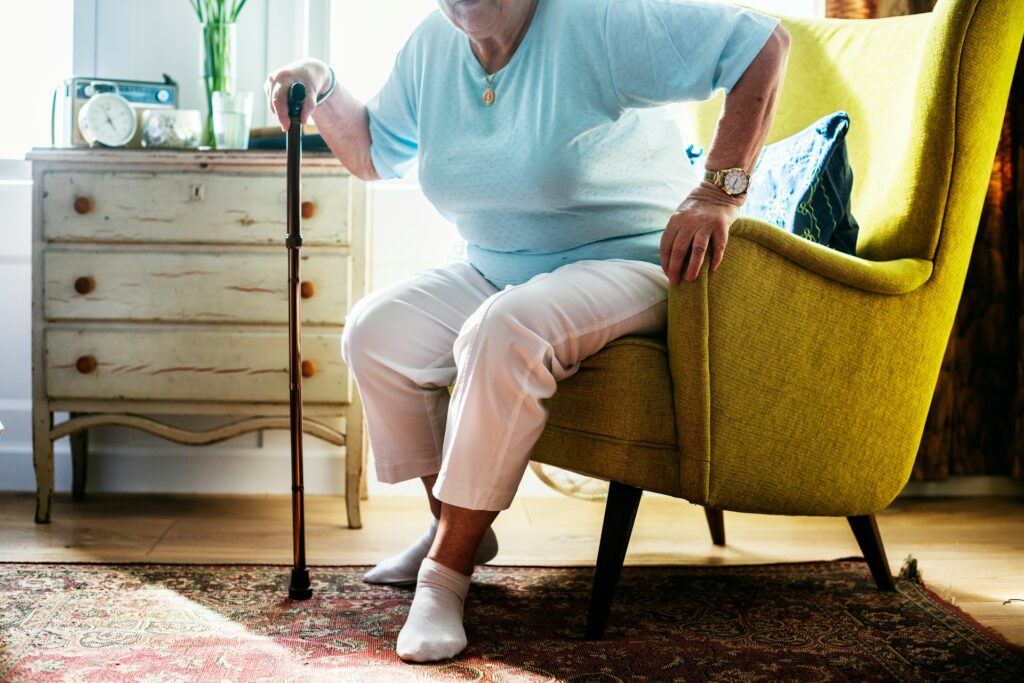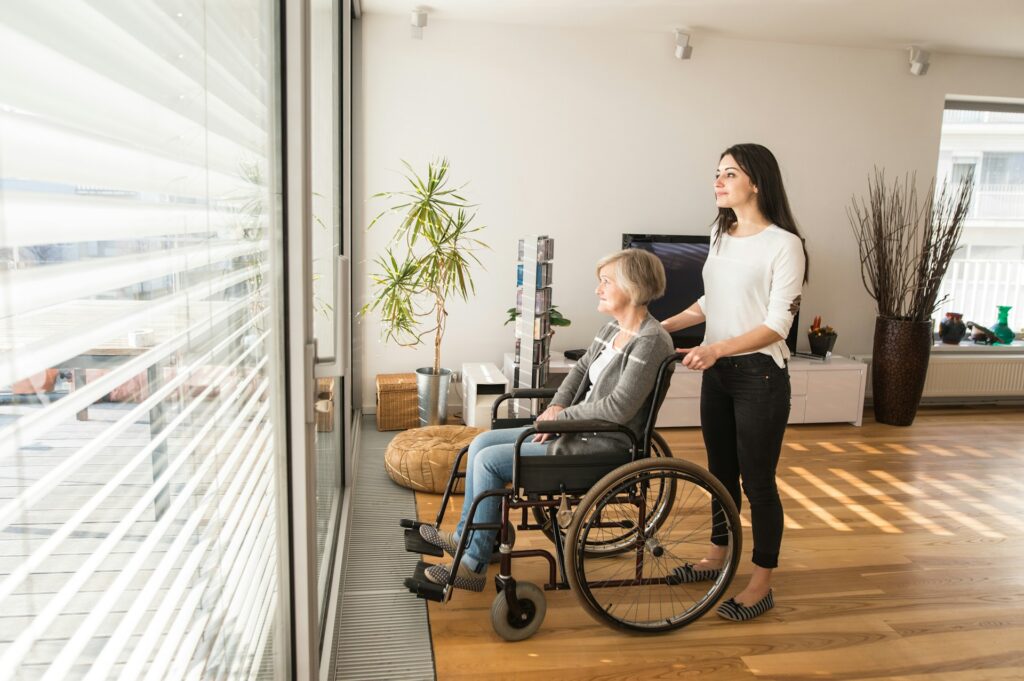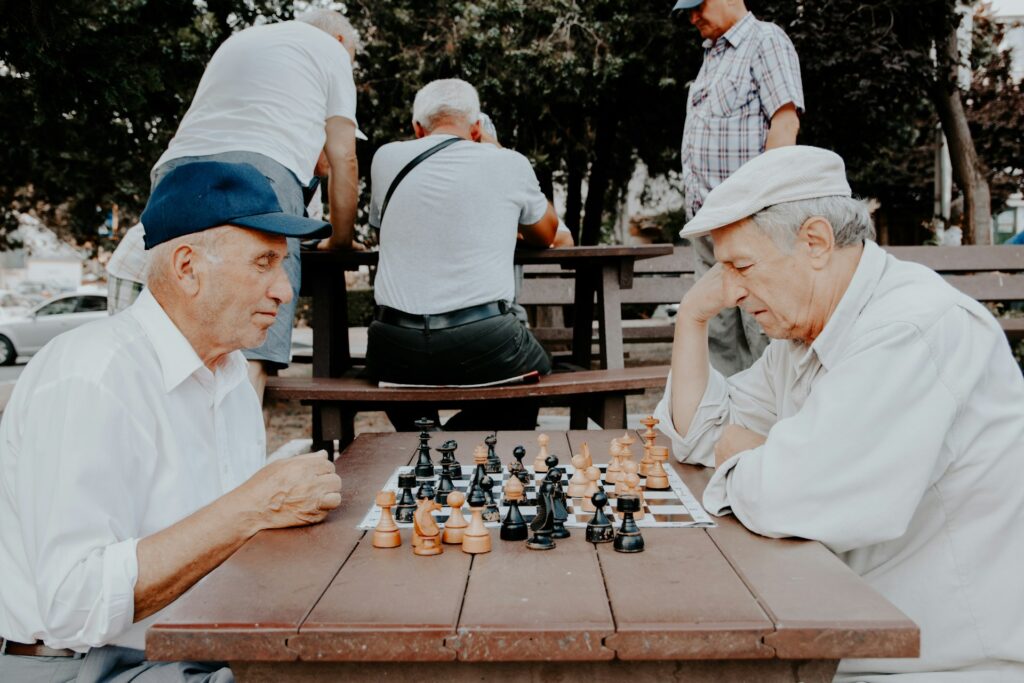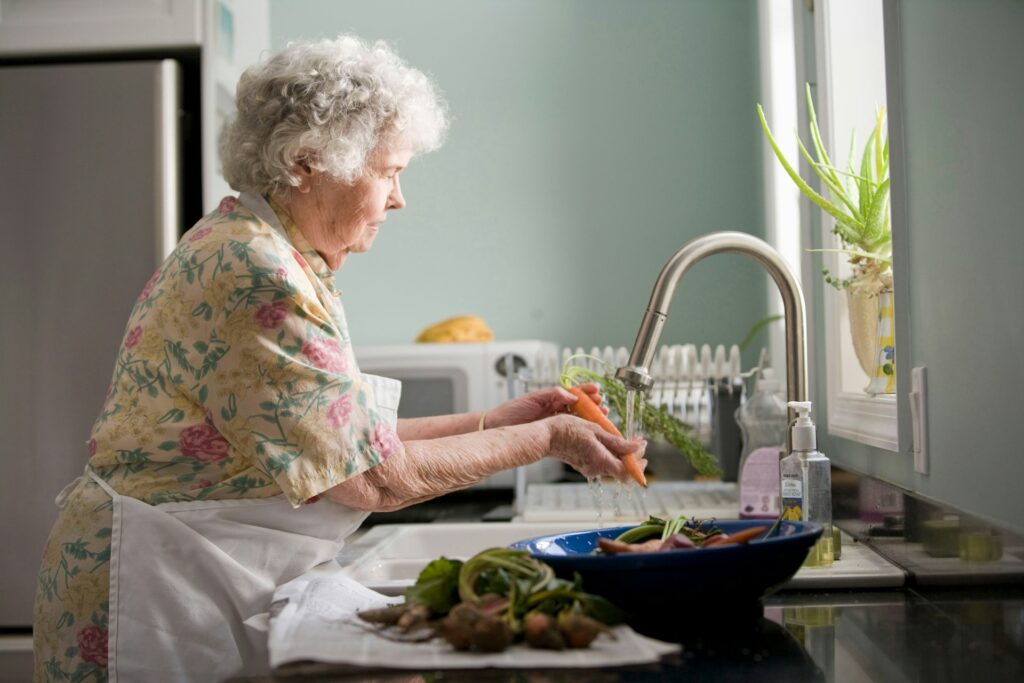Globally, around 9% of the world’s population are over the age of 65, meaning the age group accounts for more than 700 million people. With that figure growing, focus on ‘healthy ageing’ has increased, too.
The World Health Organisation defines healthy ageing as ‘the process of developing and maintaining the functional ability that enables wellbeing in older age.’
Many elderly people want to age in place – staying in their own homes where they feel most comfortable and at ease – rather than moving into residential care facilities. We’re here to consider what family members can do to support elderly loved ones in living a fruitful, independent life as they age.
With that in mind, here are some ways to help an elderly relative maintain their independence.
Adapt Their Home To Suit Their Needs
One of the most effective steps that you must follow if you want your elderly relative to be able to maintain independence long into the future is to adapt their home so it can better suit their needs.
The average property is full of both hazards and inconveniences for an elderly person, as things like staircases, unsteady surfaces, long winding corridors and other similar stumbling blocks can leave your elderly relative stuck in one room or area.
Start by installing grab bars in high traffic areas such as in a corridor or surrounding the toilet, as your loved one can grip onto these bannisters to slowly transport themselves from room to room or from seated to standing with a much lower risk of slips, trips and falls.
You might also like to consider investing in a stair lift if your elderly relative struggles to navigate the stairs, as it can easily become a huge danger if they were to lose balance or grip. A stair lift will give your elderly relative the chance to sit down and glide gracefully up or down the stairs without any risk. In some cases, they can even be kinda fun!
If you’re unsure how to do this, you can seek the help of a licensed physiotherapist. They can make sound recommendations and give you expert suggestions. What’s important is for your elderly loved one to feel empowered and safe in their home. Furthermore, this will also help with your peace of mind.
Read: Home modifications that may help you in later life

Everyday Inconveniences
It’s not only structural interventions you can make to your elderly loved one’s home to help them maintain their independence. There are also loads of small adjustments that will enable the ebb and flow of everyday life to be easier, too.
Raise the height of electrical sockets to mitigate the need for those less flexible to be bending down. Introduce plenty of extra lighting by doorways, and at the top and bottom of stairs, as well as motion-sensor activated nightlights, to facilitate a smooth and worry-free walk to the toilet in the middle of the night.
Speaking of the toilet, consider adding one downstairs (if you have the space), so when nature calls, it’s easier to answer. Declutter where you can; debris, mess and disorder represent trip hazards. Ensure surfaces below foot are slip-resistant, and windows are easily accessible and don’t require any force above 2kg (the recommended, manageable amount).
The little details can mean the world to your elders. When fixed, even the tiniest snag in their carpet can be a lifesaver. So, when you visit, inspect the home for anything that needs repair and address it immediately. Also, you can ask them what else you can do to make them comfortable. Paying attention even to minor issues can make them feel valued and loved.

Facilitate Continued Social Contact
As we’re sure you’ve heard, we’re currently seeing a loneliness epidemic within our elderly population, and this can be really impactful, not only in the more obvious sense, but also to the continued mental faculties of an elderly person.
As Age.co.uk point out “People who are socially engaged seem to have a lower risk of dementia, but the evidence is not yet strong enough to draw firm conclusions”.
For elderly relatives who are already showing signs of cognitive decline or have been diagnosed with dementia, maintaining social connections becomes even more crucial. Regular interaction can help slow progression and maintain existing cognitive function for longer. Accordingly, helping facilitate continued social contact is one of the best things you can do to help preserve your elderly relative’s continued independence.
Home carers can provide companionship and allow elders to stay active in the community. The carer can bring them to exercise groups or the park to meet others. They can also drive elders to appointments, like meeting up with friends or a family gathering. This will be a big thing that could boost their mental and emotional health.
There are lots of things you can do to help your loved one cultivate new connections and stay social. Aside from the obvious – to visit them more often – you can also help them maintain friendships with folk of a similar age, taking them to clubs, classes or social groups to meet new people, or engaging more deeply with your community through charitable organisations and volunteering opportunities.

Consider Digital Independence, Too
Should making phone calls or accessing simple information online be tough for your elderly loved one – whether due to mobility issues, declining vision, or early signs of cognitive decline – consider investing in a smart home hub device, such as an Amazon Echo with Alexa, or Apple’s Siri and setting it up for them. The hands free nature, as well as simplicity of use, can be really useful for those who struggle with mobility or cognitive function.
Go further and help your elderly relative get to grips with the various features of smartphones, laptops or tablets that can help them stay connected with friends and family. There are even specific tablets designed to be easier to use for eldelry customers, such as the GrandPad and the Claris Companion, which deploy a simplified interface and larger buttons.
Alternatively, Apple iPads or the Samsung Galaxy Tab A are generally considered to be the easiest devices to use for the elderly.

Extra Support
You don’t have to do this thing alone. Sometimes, it can be tough to spend long periods of time with an elderly relative as it becomes clear that what they really need is expert support, and it’s okay to admit you’re not equipped to always provide it.
This doesn’t mean that you should stop visiting them, as your care and attention will no doubt still spark joy, but in order to really benefit them you might need to find an expert carer who can provide the day-to-day support they require.
Professional care services come in many forms, depending on your loved one’s needs. Some elderly people benefit from a few hours of assistance each day, whilst others require more comprehensive support. The key is finding the right level of care that promotes independence whilst ensuring safety and wellbeing.
A live-in care provider is one of the best options that you can pursue, as they will be able to look after your elderly relative, giving them their full attention whether it’s night or day. For those with specific requirements, many providers offer specialist support including tailored dementia care plans, post-stroke rehabilitation assistance, and programmes focused on managing conditions like Parkinson’s or arthritis.
You’ll be able to maintain ultimate peace of mind knowing that your loved one is in good hands, receiving professional support that complements the irreplaceable love and connection only family can provide. The right carer won’t diminish your role – they’ll enhance your relative’s quality of life whilst allowing you to focus on being family rather than solely being a caregiver.

Listen & Respect Their Choices
Whilst it’s natural to want to take control and make decisions on behalf of your elderly relative, it’s vital to remember that maintaining independence is as much about autonomy as it is about safety.
Involve them in conversations about their care, home modifications, and daily routines. Ask for their input rather than simply implementing changes. They’ve lived their entire lives making their own decisions, and that shouldn’t stop now just because they need a bit more support.
Sometimes this means accepting choices you wouldn’t make yourself – perhaps they’d rather keep a beloved rug despite the trip hazard, or they’re not ready for a stairlift just yet. Finding the balance between safety and dignity isn’t always easy, but respecting their wishes wherever possible helps maintain their sense of self and control over their own life.
The Bottom Line
Helping an elderly relative maintain their independence requires a thoughtful, multi-faceted approach. From practical home adaptations and safety modifications to fostering social connections and embracing technology, each step you take can significantly enhance their quality of life and sense of autonomy.
Whether you’re installing grab bars, arranging regular social activities, or seeking professional support, the goal remains the same: to empower your loved one to live as independently as possible in the comfort of their own home. For those caring for relatives with specific needs, services offering tailored dementia care plans can provide specialist support that addresses the unique challenges of cognitive decline whilst still promoting independence where possible.
Remember, asking for help isn’t a sign of failure – it’s a recognition that your elderly relative deserves the best possible care, and sometimes that means bringing in the experts whilst you continue to provide the love, attention and family connection that only you can offer.





